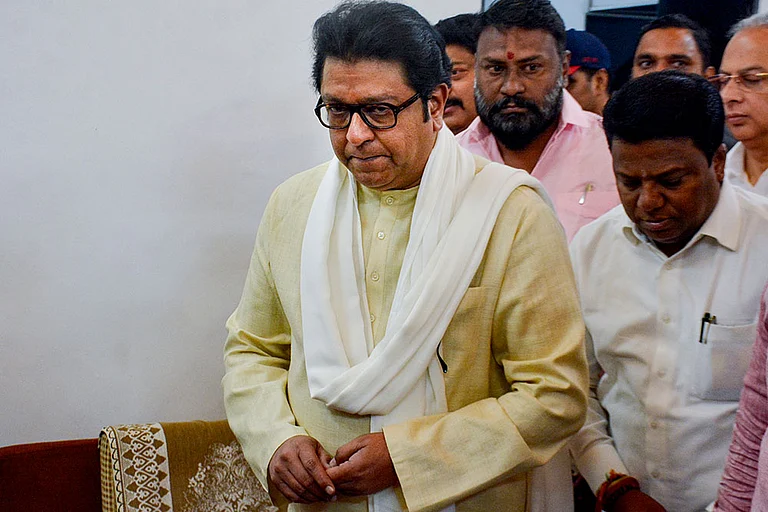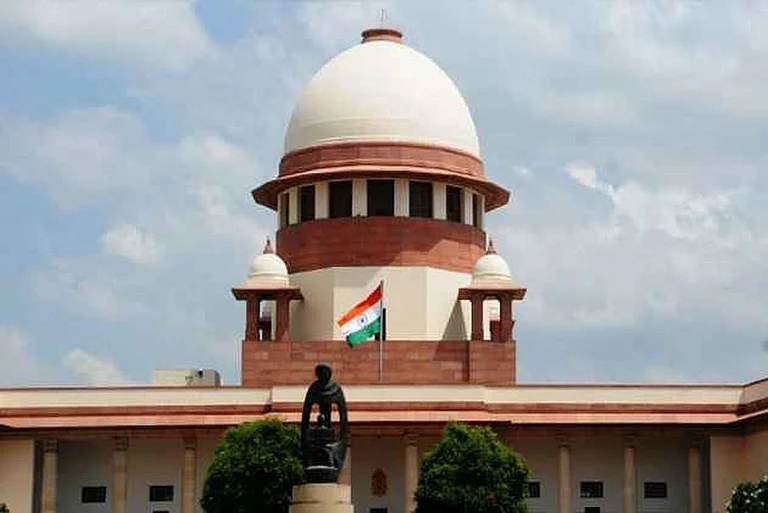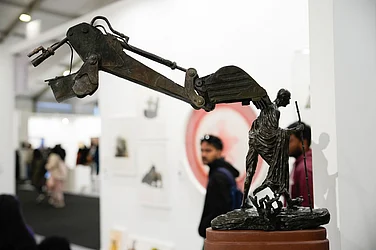In the run up to the G20 event, scores of underpriviledged citizens in Delhi were left homesless. Between January to May, as per media reports, hundreds of homes were broken, and about 260,000 people were left homeless across a series of demolition drives, many of which were carried out without following requisite procedures. Shedding light on such incidents, a report titled “Promises & Reality 2019-2023” released by Wada Na Todo Abhiyan found that the last five years have seen increased disenfranchisement of the marginalised and erosion of several aspects of Parliamentary democracy.
Released ahead of the crucial 2024 Lok Sabha elections and amid the ongoing assembly elections, the report examines the status of democracy, development, governance and marginalised communities. Starting with a critical review of eroding parliamentary processes, the authors comment on many pressing concerns, such as the hurried passage of Bills without debate, limited engagement of parliamentary committees, reduced sitting days, limited budgetary deliberations, restricted access to data for Members of Parliament, and the growing presence of elected representatives with criminal records.
Speaking at the launch of the report at the Constitution Club in New Delhi, Justice Madan Lokur highlighted that “bulldozer justice is taking over natural justice”. “Bulldozer justice refers to laws being implemented with a very heavy hand. There have been many cases where people’s houses have been demolished without giving notice to them. Sedition laws are being used on university students, school children, and people on social media. When the Supreme Court directed not to use the sedition laws, the executive started using UAPA to charge people,” he said.
Justice Lokur also spoke about the need for elected representatives to be accessible to common people so that some issues can be solved at their level and not come to court.
Increased marginalisation
The report highlighted a persistent increase in atrocities against Dalits, meaning that the plethora of existing laws and legal mechanisms have not helped in curbing violence. The National Crime Records Bureau Report 2021 says that atrocities/crimes against Scheduled Castes have increased by 1.2 per cent in 2021 (50,900 cases) over 2020 (50,291 cases). Charge sheeting percentage for the atrocities against Scheduled Castes ended with 80.0 per cent and conviction percentage under the SCs and STs (PoA) Act in conjunction with IPC remained at 36.0 per cent for SCs. At the end of the year, 96.0 per cent of cases of atrocities against SCs were pending trial. Nevertheless, budget allocations for implementation of the Scheduled Castes and Scheduled Tribe (Prevention of Atrocities) Act, 1989 (SC & ST (PoA) Act) have seen an annual reduction.
Noting the impact of the Covid-19 pandemic on the poor and marginalised sections of the population, the report noted that the large sections of the rural population had been impacted pre-Covid by structural changes in the labour market that translated into the collapse of income levels, erosion of savings and ballooning of household debt. Rural poverty is directly linked to food insecurity. While India is one of the few nations in the world that has not released data on poverty in over a decade, data from the ‘leaked‘ NSS report of 2017-18 shows in rural India between 2011-12 and 2017-18, the per capita real spending on all goods and services, fell by 9 per cent.
The proportion of the rural population not able to access 2,200 calories per person per day has risen sharply from 68 per cent in 2011-12 to 77 percent, India now ranking a disastrously low 111 among 125 countries in the World Hunger Index.
In less than 15 years, India has fallen 39 places on the Economic Gender Gap too, from 110 in 2006 to 149 in 2020.
The government recently released the ‘National Multidimensional Poverty Index: A Progress Review 2023’ which experts feel rather inexplicably reports a significant decline of 9.89 percentage points in the number of multidimensionally poor, from 24.85 pe rcent in 2015-16 to 14.96 per cent in 2019-2021. Even then, ‘374 million poor people are deprived in nutrition, sanitation, housing, and cooking fuel at the same time; 445 million lack both electricity and clean drinking water and 4.1 million are deprived in all included indicators,’ as per the official review.
Noting rising inequality and the rich-poor divide, the report noted, “No matter how robust GDP growth rates are, unless the benefits are distributed so as to reduce inequalities, the development process of a country will be impeded. India is among the most unequal countries in the world, with rising poverty and an ‘affluent elite’."
Beyond inequity, experts like Avinash Kumar, Distinguished Fellow at the Centre for Equity Studies, questioned the “development” plank of the current government in the backdrop of increasing environmental catastrophes like the recent tunnel collapse in Uttarkashi by drawing parallels between isolated incidents of ecological disasters. “The narrative being created by the government is of large-scale development through images of building highways and roads, but what is happening in Shimla and Uttarkashi is not being questioned,” he said. While the 41 mine workers who had been trapped in the tunnel have finally been rescued, the issue of unsustainable and ill-planned development aimed at winning political brownie points remains unaddressed by the media of legislators.
The section on development concludes by stating that the prevailing growth paradigm being followed by the present government lacks the essential element of inclusive democratic development.
Mediating on the status of marginalised communities in the last four years, University of Hyderabad professor Dr Tanweer Fazal, an expert in the sociology of nationalism(s), community formation and identifications, said, “Marginality can be segregated into systemic marginality and marginality which is deliberately produced through the actions and inactions of the state. The latter has been particularly true after 2014 in India, even more so after 2019”.
The authors of the report highlight that in the past five years, 339 people have lost their lives in fatalities related to manual scavenging. Global Climate Risk Index 2021 ranked India the 7th most affected nation due to climate change and climate apartheid is also expected to disproportionately affect historically marginalised communities. Despite recommendations by civil society, budget allocations for SC communities in central government schemes addressing climate change in 2023-24 (Green India Mission, National Coastal Mission, Fasal Bima Yojana, Jal Jeevan Mission, Swachch Bharat Mission) have either remained the same or decreased, except for a slight increase in the Krishi Vikas Yojana.
While taking note of the progressive laws and judgments in favour of the LGBTQIA community, the report concludes that the situation on the ground is far from ideal. “LGBTQ+ people are constantly targeted, harassed, and discriminated against,” the authors note, adding that the “harmful pseudoscientific practice of conversion therapy has also led to suicide and acute emotional trauma for many members of the LGBT*QIA+ community”. It also raised questions about the government’s decision to omit disability-related questions from the sixth round of the National Family Health Survey as it is unfair towards the needs of this community, which constitutes 2.21 per cent of the Indian population, as per to the 2011 census.


























